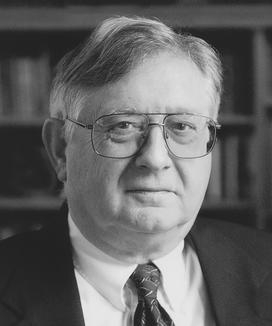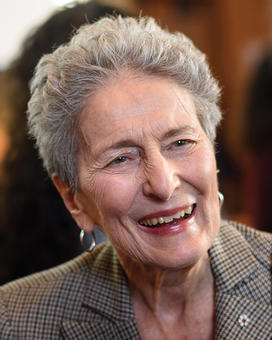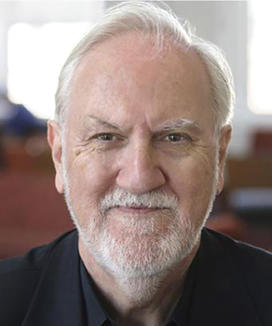
John F. Wilson, a former Princeton graduate school dean and religion professor who spent more than 40 years on the faculty, died Oct. 5. He was 90. As dean, Wilson helped to expand financial support for doctoral students and led the graduate school’s centennial celebration in 2000-01. He also chaired the religion department from 1973 to 1980 and served as the first head of Forbes College from 1983 to 1992. Colleague Stanley Katz, who collaborated with Wilson on a long-term project studying the relations of church and state in the U.S., said in a University obituary that Wilson “exemplified all that is best in liberal teaching and learning.”

Natalie Zemon Davis, a renowned social historian who directed Princeton’s Shelby Cullom Davis Center for Historical Studies, died Oct. 21 at age 94. Davis earned acclaim for reconstructing history in works such as The Return of Martin Guerre, the story of a 16th century French peasant, and Women on the Margins, which drew on the memoirs of unsung women in 17th century Europe. She joined the faculty in 1978 and transferred to emeritus status in 1996. President Barack Obama presented the National Humanities Medal to Davis in 2013. “With vivid description and exhaustive research,” the citation read, “her works allow us to experience life through our ancestors’ eyes and to truly engage with our history.”

Anthony Vidler, an architectural historian who spent nearly three decades on the faculty, died Oct. 19 at age 82. Vidler, a native of England, served as the first director of the architecture school’s history and theory Ph.D. track. He left the University in 1993 and later served as dean of architecture at Cornell and the Cooper Union before returning to Princeton as a visiting professor in 2014. Professor Beatriz Colomina, in an obituary published by the architecture school, said the arrival of Vidler and colleagues Kenneth Frampton and Alan Colquhoun in the 1960s was compared by some in the field to pop music’s British invasion: “Architectural history became cool and Princeton the place to be.”










3 Responses
Richard A. Etlin ’69 *72 *78
11 Months AgoAn Enduring Debt to Anthony Vidler (and Other Intellectual Giants)
I have an enduring debt to the late Professor Anthony Vidler (In Memoriam, December issue). Few students knew him as I did. He was my preceptor during his first semester at Princeton. As a senior, I served as his research assistant. And in 1972 as I was completing my M.Arch. degree, he invited me to join his recently established Ph.D. program in architectural history. Kriti Siderakis ’82 *88 (Inbox, February issue) is right to remind Princetonians about the certificate program for which Professor Vidler had once served as director, the European Cultural Studies Program.
And yet, to Princeton’s credit, this was not an innovation. As an undergraduate, I participated in the Special Program in European Civilization (SPEC), directed by Romance languages and literatures professor Blanchard Bates *41. This was a certificate program that allowed students to take three of their eight departmental courses in any other departments and to write an interdisciplinary senior thesis. SPEC had been created in 1950 and first directed by Professor Ira Wade *24. Those of us who were Professor Bates’ thesis students in 1968-69 had the rare privilege of working with Professor Wade for one semester, when he came back from retirement to replace Professor Bates on sabbatical.
In 1973 Professor Vidler and history professor Carl Schorske created the Western Cultural and Historical Studies program, which merged with SPEC in 1975 to become the European Cultural Studies Program, still in operation nearly three-quarters of a century after SPEC had been initiated. All four of these men were intellectual giants.
Kriti Siderakis ’82 *88
1 Year AgoRemembering Anthony Vidler
Professor Anthony Vidler (In Memoriam, December issue) will rightfully be remembered in endless sources as an architectural historian, writer, professor, and editor.
As far as Princeton is concerned, I would like to remind that Tony Vidler directed the European Cultural Studies Program in the early 1980s, an interdisciplinary program that included history, art history, anthropology, and theory — a maverick intention at the time. It skirted the departmental requirements, even if you needed to have at least one language requirement.
I wrote a letter supporting the European Cultural Studies Program. Later, I was awarded magna cum laude in independent studies through thesis seminars.
Tony Vidler believed in the humanities as an interdisciplinary field of study beyond his field of architecture, way before the overspecialization and tribalism of today. He opened a magical land of learning for me.
There are few with the cosmopolitanism, the language, and the grace to replace him. And, unlike many professors I knew, he truly loved teaching and his students.
btomlins
11 Months AgoFor the Record
A letter in the February 2024 issue mischaracterized the beginnings of the Program in European Cultural Studies. Carl E. Schorske led the program at its founding in 1975. Anthony Vidler served as director from 1980 to 1987.